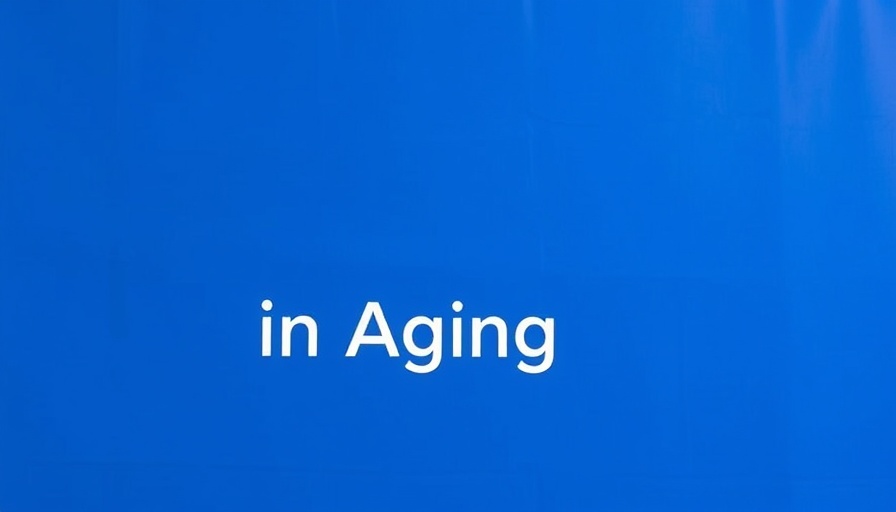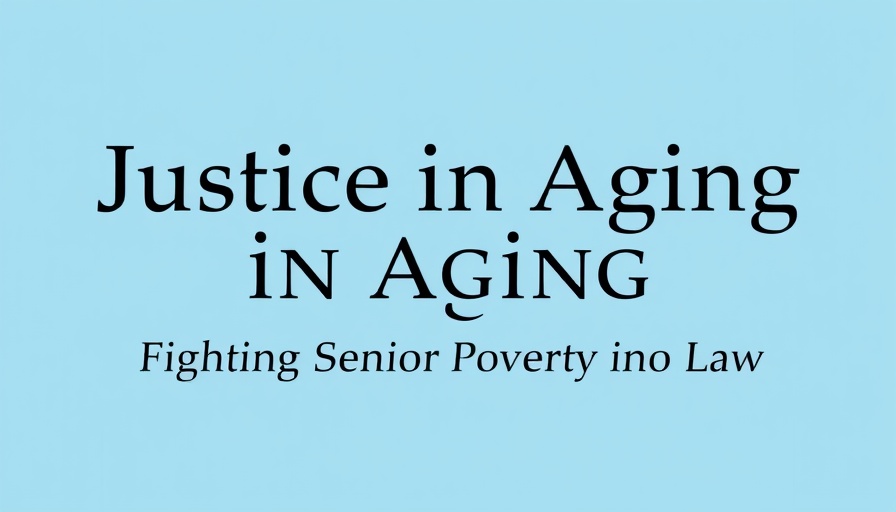
Understanding the Impact of the Reconciliation Bill on Older Immigrants
The recent reconciliation bill poses a significant threat to the health coverage of older immigrants in the United States. With over 8 million adults aged 65 and older residing in the country, a substantial number of them are noncitizens who have contributed to Medicare for years. Unfortunately, this legislation removes access to Medicare for many of these individuals, undermining the promise of health care that was established for those who pay into the system.
The Threat to Medicare: Breaking a Promise
Currently, lawful immigrants can enroll in Medicare if they meet the necessary work requirements and age parameters. These individuals, who have collectively paid more than $58 billion into the Medicare trust fund, are now being denied the health coverage they deserve simply because of their immigration status. The House's reconciliation bill restricts eligibility almost entirely to U.S. citizens and select groups of immigrants, leaving many lawfully present individuals vulnerable and without adequate health care options.
Wider Implications: Medicaid and ACA Cuts
In addition to targeting Medicare, the reconciliation bill also cuts access to Medicaid and Affordable Care Act (ACA) subsidies for older immigrants, resulting in a larger crisis regarding healthcare access for this population. Losing Medicare eligibility means these individuals will also be ineligible for ACA tax credits, eliminating affordable health care pathways. As a result, older immigrants will bear the brunt of these legislative changes, leading to severe health and economic consequences.
The Consequences: A Call for Action
Congress must reject these harmful policies that not only threaten Medicare but also leave older immigrants without any means of accessing health care. Such cuts not only disregard the contributions made by these individuals but also reflect a lack of compassion and concern for the well-being of those who have given so much to this country.
Future Predictions: The Current Landscape of Health Care
If these legislative changes come to fruition, the gap in health care access for older immigrants is set to widen. This could lead to increased health disparities within communities, as many will be forced to forego necessary medical treatments due to lack of coverage. Experts predict that without intervention, we may see a rise in preventable health issues among this demographic, underscoring the urgent need for a more inclusive and equitable health care system.
Understanding Community Responses and Reactions
The potential implementation of the reconciliation bill has sparked outrage among health advocates and immigrant rights groups. Many organizations are rallying to raise awareness and mobilize public support against these cuts. Community outreach efforts are crucial as groups work to connect older immigrants with resources and support to navigate the changing health care landscape. Educating the public about the importance of preserving access to health care for all is vital in shifting the narrative around these legislative threats.
Common Misconceptions About Immigrant Contributions to Medicare
Many people believe that immigrants do not contribute to social services like Medicare, which is entirely false. Lawful immigrants contribute significantly to the Medicare trust fund, yet they face unnecessary barriers when needing health care services. Dispel these myths by sharing accurate information on how immigrants not only pay into the system but also enrich communities and the economy.
It’s crucial for older immigrants and their advocates to continue raising their voices against these unjust policies. Congress must prioritize inclusive health care reform that honors the contributions of all residents. We cannot ignore the reality that access to health care is a fundamental right, regardless of one’s immigration status.
For those affected by these policies, it is essential to stay informed and connected with local advocacy groups that can offer assistance. Together, we can challenge the narrative and fight for equitable health care solutions.
 Add Row
Add Row  Add
Add 




 Add Row
Add Row  Add
Add 

Write A Comment